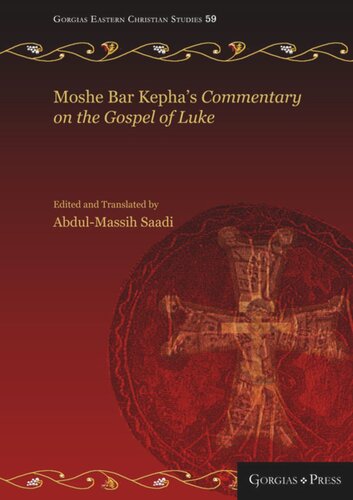

Most ebook files are in PDF format, so you can easily read them using various software such as Foxit Reader or directly on the Google Chrome browser.
Some ebook files are released by publishers in other formats such as .awz, .mobi, .epub, .fb2, etc. You may need to install specific software to read these formats on mobile/PC, such as Calibre.
Please read the tutorial at this link: https://ebookbell.com/faq
We offer FREE conversion to the popular formats you request; however, this may take some time. Therefore, right after payment, please email us, and we will try to provide the service as quickly as possible.
For some exceptional file formats or broken links (if any), please refrain from opening any disputes. Instead, email us first, and we will try to assist within a maximum of 6 hours.
EbookBell Team

0.0
0 reviewsMoshe Bar Kepha was a prolific writer of the ninth century. His writings reflect various aspects of West Syriac theology, ecclesiology, and apology. His literary legacy links the earlier Syriac exegetical tradition (beginning with Ephrem) with the Syriac 'Renaissance' of the eleventh to thirteenth centuries. His use of sources crosses Christian confessional boundaries in such a way that his works are tinged with aspects of Syriac exegesis from both East and West Syriac traditions. Moshe Bar Kepha is the first Syriac exegete to comment on every verse of the Gospel rather than treating one episode after another. In his Commentary on Luke, the Muslim-dominated context in which Moshe lived is clearly evident in the background, and his aim is to fortify the credibility of the Christian faith and the validity of Christian doctrines for his readers. Along with the Commentary’s rich apologetic content, the text is a gold mine, preserving earlier Syriac patristic interpretations from the fourth century onward.